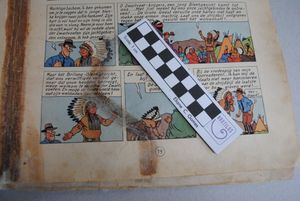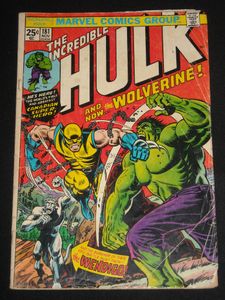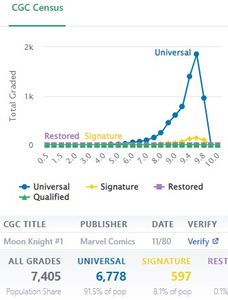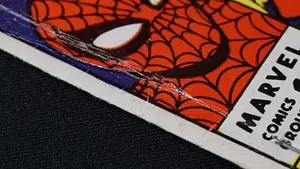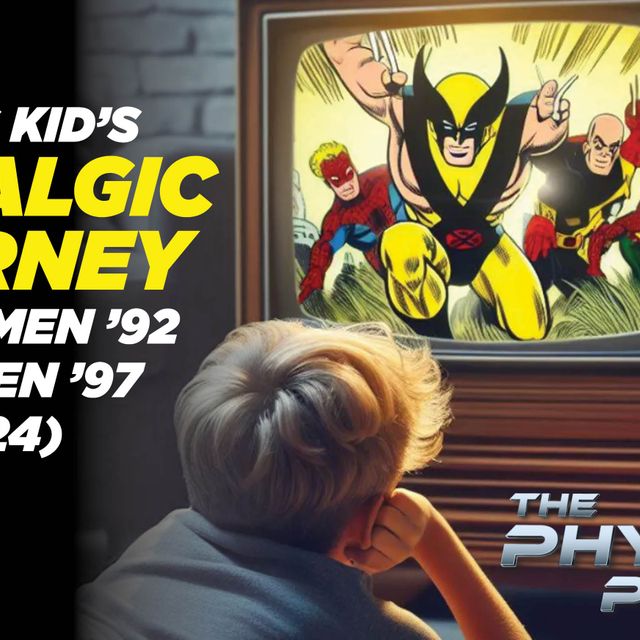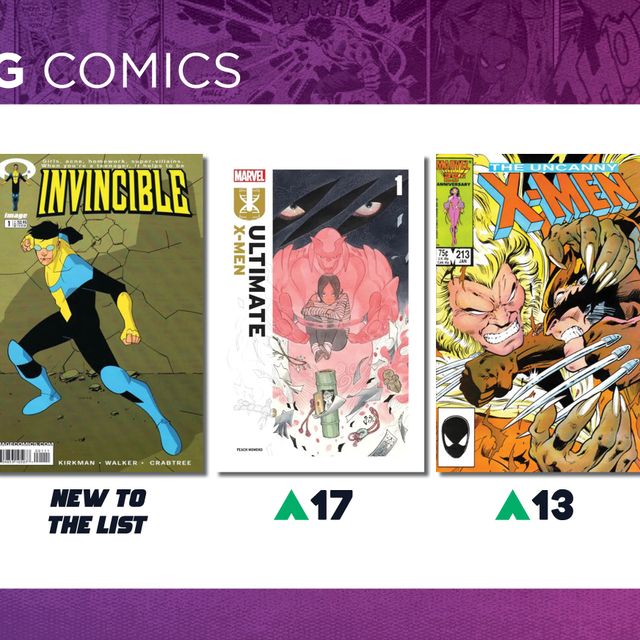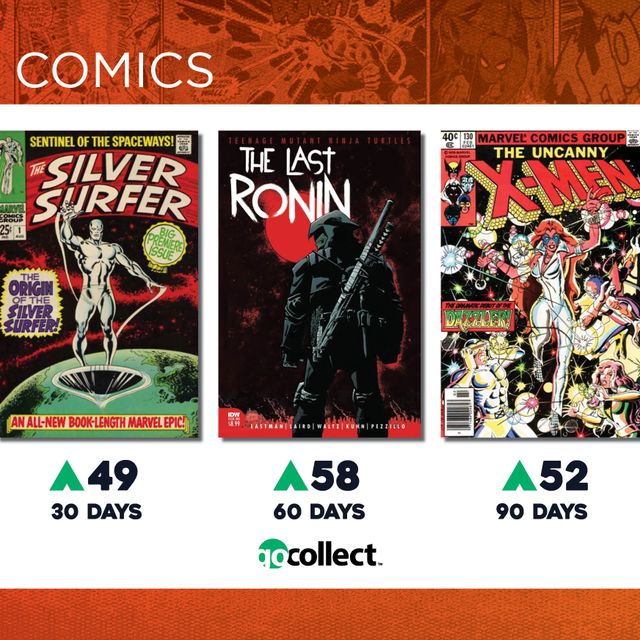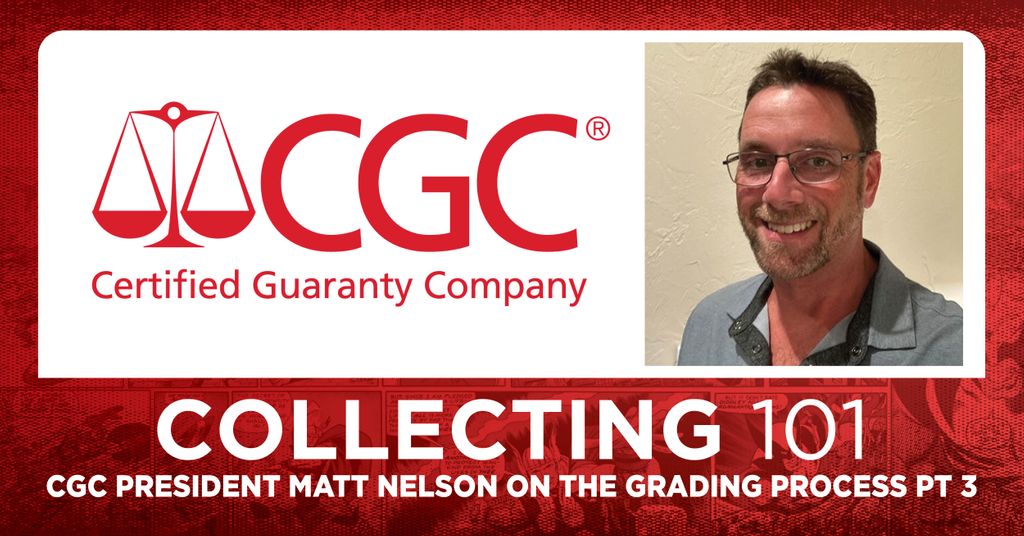
I. Mistakes People Make Submitting to CGC
There was one major question I wanted to ask Matt Nelson. I knew I would get one answer; that was a given. The other answer surprised me, but then I realized I, too, had encountered this in buying. While I did not mind, I never thought about how it could impact a retailer.
"I would probably say that correct evaluation of the books is number one. ...But also packing and shipping. There's such a thing as underpacking for the books to get damaged, but there's also a such thing as over-packing... They may come bombproof (and that) actually slows down the process of opening the packages. We have shipping kits that we sell, and those are perfect for shipping."
II. Best Methods of Shipping
There are so many methods to choose from; I had to ask.
"...If you're shipping a lot of books... typically UPS I think works better for shipping. Whereas, with a very high-end book, you may want to go like the FedEx route, which is quicker (and) more secure. Obviously, it's going to cost more money, but that's worth investing."
III. Risk of Loss
Many people do not understand risk of loss. If an item of value is damaged, you want to know who will ultimately be responsible for that damage. I always recommend you have insurance on your books, but many do not purchase separate insurance policies. Matt mentioned that you should have your books covered. Thus, this question is very important. Matt gave us some insight on this topic as it related to CGC. 
"So, obviously, until the package arrives here - that risk is on the the the carrier so FedEx, (USPS), UPS. For that reason, you should always be fully insured for the contents. Once the package gets here, assuming it arrives here safely, responsibility is on us. While the books are here with us on our premises, it's our responsibility."
The proper evaluation is important if an item is damaged. If you find out who is responsible for the risk, the next step is to find out what will be covered. This is very important and Matt again elaborated on why in his response.
"More often we get people who are undervaluing that their book simply because they're trying to get books through at a cheaper rate ...Obviously the problem with that (is) that if you overvalue books you're paying a higher fee (and if) you're undervaluing your books, if something happens to them we're only going to pay out the amount that the value that's listed on the form. So if you send us a $1,000 book and put it for 50 bucks on the form and something happens, you're only going to get 50 bucks."
A low declared value will also impact what is paid out if the items are damaged by the mail carrier. The post office may investigate if you declare for shipping that the items are worth $50 and yet you fill out on the forms the items are worth $50,000.00 or vice versa.
IV. Buyer's Beware
I asked Matt Nelson about what books you may want to avoid buying not-graded. He focused on high-end books because most higher-end books have already been graded. His advice was insightful because there may be a reason the book was not graded to increase the raw value.
"Now, if you go to a convention, and you're buying from dealers, then you have to realize that you're buying from somebody who you have to assume most of the time knows more about it than you do, and so you have to ask yourself; 'why is this book not already graded?' because a lot of dealers obviously use us.
Normally there's a good reason... I mean maybe there's a flaw in the book, or maybe it's restored, or maybe it's missing a page or something. And these are all things that the dealer should disclose..."
Matt went on to explain how you can find great raw books still out there and the motivation behind retailers who may not have had them graded.
"On occasion ...they're their dealers who just choose not to use CGC or only use them for their top top books. There are a lot of situations, particularly with modern books, where you'll go into a dealer's booth and go through his boxes and you'll find all kinds of gems in there that he just doesn't want to mess with he doesn't feel like paying the fees for - you can find a lot of great stuff in their boxes... The one thing to watch out for is when you start getting into really pricey books, and I'm talking like $1000, but certainly like $5000 or $10,000."
This should make it so the higher the price of the non-graded book, the higher inspection the buyer should place on the book. Yes, you can find a copy of Incredible Hulk #181 ungraded for $8,000.00, but you should review it to make sure the book is complete and unrestored to the best of your ability. Either that or buy from a dealer you know and maybe pay more for that trust factor.
V. Recommendation to First Time Submitters
This question was asked to assist first-time graders but it should apply to all people who send in their books to be graded. The revelation Matt Nelson gave about his personal experiences drove this message home.
"...We all make mistakes submitting when we first start...When I first started, I got some clunkers here and there. I would start off with a smaller batch, a test batch, so to speak, maybe even have a more valuable book so you know your risk is lower (and) you're not submitting something that's on the cusp of not being worth a submission fee and just see how the grades come back. You know, test yourself and then, as you feel more comfortable with the submission process and the grading, then you can start to work your way back to the other books in your collection that have less value and there's more risk if you off on the grade. You can also use the screen/pre-screen services. "
VI. Census
I asked Matt Nelson about if I should look to grade books based on low CGC census numbers. I always study these numbers when comparing sales on the GoCollect site. These numbers are one of the most important numbers that GoCollect provides. He mentioned a Heritage Auction and a run of Amazing Spider-Man issues.
"...You can see the proof of the power of the census was there in that... the issues that had low population reports and high-grade copies were fetching huge multiples. I mean, five to ten times more than the surrounding issues that had a normal population of 9.8 across the board in that title. This only continues as time goes on.
As we get more and more of this stuff graded, the census is going to become more and more accurate as to what actually exists out there; that's going to be a huge driver down the road. So two things to look out for, yeah it's basically like the future of the interest of comics in general based on movies and such, but also the population. Those are probably the two biggest factors beyond grading when it comes to what you're getting today for future investment.
One of the biggest things I have learned in my years of studying the comic book market is that people tend to only focus on extrinsic factors, such as movies and the FMV of a book. Hardly anyone ever studies the census numbers. Books that are in demand may be ultimately harmed by high census numbers, while books that have low census numbers may be exploited UNTIL the full picture of the population becomes apparent.
VII. Grading Scales
I asked Matt Nelson if he would ever release more in-depth notes on the grading scales so people know what defects impact the comic book grades. This would take some of the mystery out of the grading process for the consumer.
"So internally, we have extensive grading standards...There's over 100 defects that we have mapped out in our grading guide that's available to the graders. For every single defect, there's a description, there are pictures, and there are degrees that are defective next to the blog. So, for instance, an easy one is creases.
We have our standard for creases. If it's a 1/16 inch crease, its maximum 'this grade'; a 1/8 inch crease, or 1/4, or one half, one inch, or two-inch, or five, and so on and so forth. So, we have all the degrees of the defect in the subsequent grade or maximum grade they can receive with a defect mapped out for all the defects. Also restoration, page quality, all these other things, qualifiers. So our plan, in the future, hopefully the near future, we plan on actually publishing a version of our standards for the public which will help exactly the situation we're talking about."
I believe a release of the grading scale would install CGC as the new Overstreet in the comic book lexicon when it comes to grading. Most third party graders keep that information close to the vest, but fortune favors the bold. I hope one day some company will release an in depth grading guide. Their consumers would buy those books more than a variant first issue.
VIII. Future Product Reveal?
I took the question one step further when it came to CGC educating the public on grading. I asked Matt Nelson about the possibility of future grading seminars for comic book fans being held.
"Things have gotten so crazy over the past couple of years and obviously we need to get on top of our turnaround times right now, but once we clear through this, obviously there's gonna be a need for graders in the future and the need to educate the public. It would be ideal to set up something besides the published standard - Go a step further than that and actually hold grading seminars, that's certainly something we'd love to do in the future."
This was a possible game-breaking revelation to this journalist. I could only imagine all the people who would be willing to pay to attend a seminar on how to grade like CGC. You would not be a CGC grader, but it would assist you in what to look for when buying a book. Again, no two graders would ever see a book the same way, but it would provide general education on what to look for when buying raw books.
Interviewer's Comments
I want to thank Matt Nelson and the staff of CGC. They all provided access that allowed us to peek behind the curtain. This knowledge has taken some of the mystery out of grading. The knowledge obtained will make the grading experiment that I set out to conduct a better one because of the insight provided. I was amazed, though, at that possible game-changer of CGC seminars.
I believe that CGC releasing notes on their grading process could cement them as the kings of grading. Years ago, Overstreet grading was used by most hard-core hobbyists. If CGC does release its grading guides, it will make them an iconic brand. How many of the readers ask for a Kleenex or a Thermos instead of a tissue or insulated cup container? Releasing the grading standards will achieve that brand identity.
Seminars teaching these standards would also provide a new source of revenue for the company. I know I would pay to attend. I believe the industry would adopt their grading scales because of the universal usage it would have in the hobby; consumers would start to identify them even more for their comic book grading brand.
Furthermore, the release of this information would not impact the grading division. Attorneys interpret facts of a case using the same law books and established case law, but we still see things differently. That is the reason cases go to court to have an arbitrator render a final, unbiased decision. CGC grading would still be the judge of the grade of the comic book for buyers and sellers. Nothing would change. People would still send in books to have them graded.
You may think the book is a 9.8 and the buyer might see an 8.5 because price is involved, but a CGC grader could still see it as a 9.4 or 9.2. This happens in the courts all the time. The benefit, though, would be that you would save money on buying raw books because you have knowledge of where the books should fall. Sellers would also benefit because raw books tend to not sell as much when compared to graded books.
Conclusion
I hope CGC one day makes their grading scales available in print and taught at comic book conventions. The knowledge would be worth the price of admission. I wonder what our readers think. Please let us know in the comment section. The industry is listening, so let your voices be heard if you want a comic book grading guide, CGC courses, and other facts brought out in this interview.
If CGC sees a demand for a published grading guide or classes, they may look to meet that demand, but you have to let your voices be heard. The readers asked for more in-depth coverage of the industry in our comment section and this article series is the result so let us know what you think. Your words have power, so let's hear from you!
PS
The comic book grading experiment will continue in upcoming articles!!!
Huge thanks to Matt Nelson for sitting down with us! Want more content like this? Let us know in the comments!

*This blog is not sponsored nor requested by CGC.

